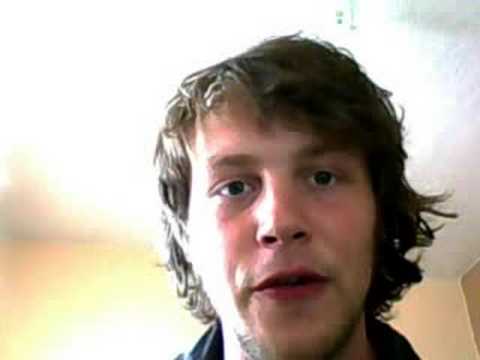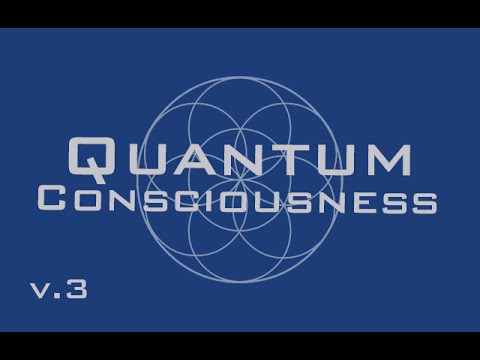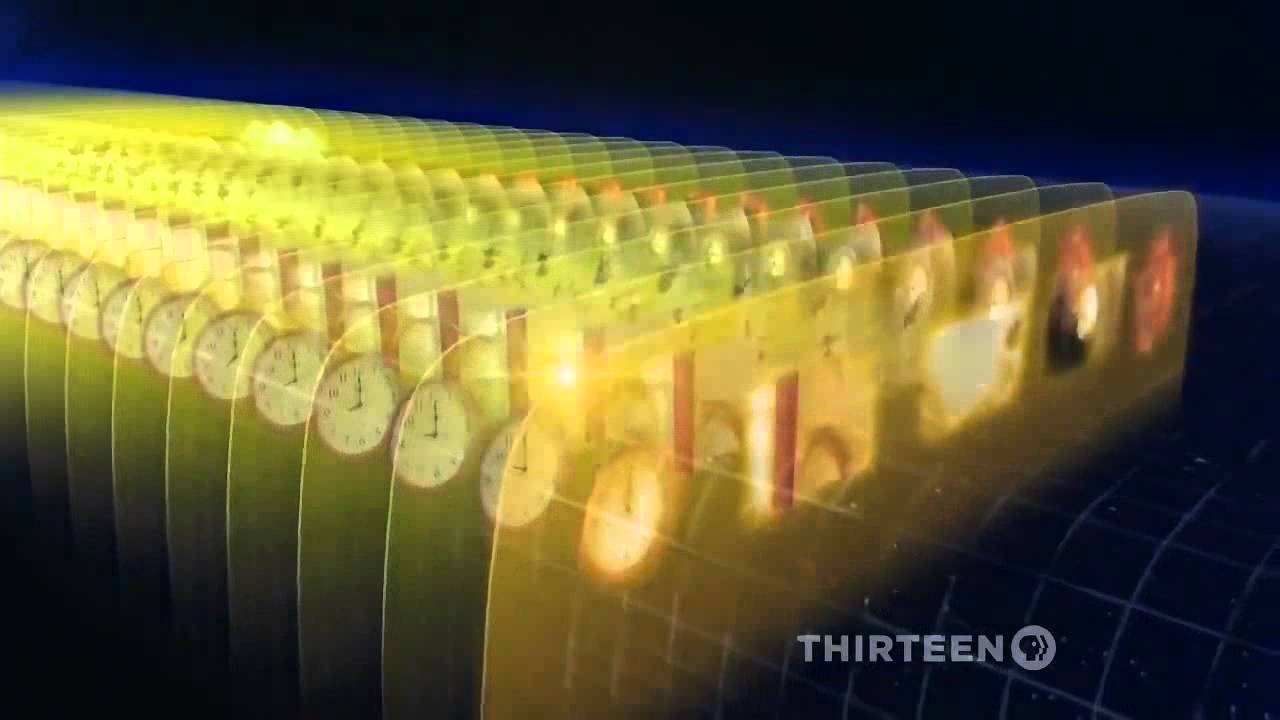Mechanics 0f Thought
Part of the “Debunking quantum mind” series. This video looks at the “Copenhagen Interpretation”. n.b althought there are many different views within Copenhagen this video focuses on Heisenberg’s interpretation. i.e.
“Whatever Heisenberg’s motivation, his invention of a unitary Copenhagen view on interpretation, at the center of which was his own, distinctively subjectivist view of the role of the observer, quickly found an audience.”
– Found Here
http://plato.stanford.edu/entries/qm-copenhagen/
http://en.wikipedia.org/wiki/Copenhagen_interpretation#cite_note-1
Shrodinger’s Cat
http://en.wikipedia.org/wiki/Shrodingers_cat
Berkeley:
http://en.wikipedia.org/wiki/Idealism#George_Berkeley
Buy this book!
http://www.amazon.com/Search-Schr%C3%B6dingers-Cat-Quantum-Physics/dp/0553342533
Source



cats can see protons
This is the von Neumann-Wigner interpretation not the standard Copenhagen interpretation.
Just curious what do you do, are you a philosopher or a physicist?
Well this explains why group therapy works so well.
Agreed. Who defined the universe as self contained? This universe is infinite..
Who told you the universe is self contained? Therein is your error and your argument falls on that pretext.
@JohananRaatz Hey Johanan! Nice to see you here!!!
This is the worst attempt at refuting the Copenhagen Interpretation I have ever seen!!!!
@itsbrake He obviously hasn't read "The Emperor's New Mind"or "Shadows of The Mind"!
@jonesgerard The Copenhagen view of quantum theory was developed primarily by Bohr and Hesienberg. While it does mention an 'observer' it can be presumed that the observing would not have to not done by a conscious being, it could be performed by a measurement device.
@LordImmolation What about neutral monism or protophenomenalism? Doesn't that seem to make more sense in regards to the mind/body problem than eliminativism and/or hard AI?
No, the conscious observer is not in SuperPosition,
consciousness is the collapse of SP.
Why do you think we call it quantum quackery???
I can't escape the impression that this "debunking" is nothing more than an expression that the Copenhagen interpretation conflicts with pre-conceived ideas. It reminds me of the attempted "debunking" of quantum physics itself (e.g. "God does not play dice.")
My opinion is that an interpretation cannot be tossed out on the grounds that it doesn't fit well with what we think we know.
consciousness itself is the "special" property
Whatever. Go back to flipping burgers… Your lunch break's over.
wtf why dont you go after the knights code of stars are magic gods theory. Go after the it after it was finished…
oh ya what a difficulty. Philosophy is much more precise representation of reality than observations of reality on a subotomic level. Are you a moron? If science observes something to be a fact then phil is meaningless.
umm its significant because if its not interacted with there is zero evidence it exists. You have to interact with matter in some way to get any data from it.
if you dont have interaction with something then there is no evidence it exists. Its like believing in magical fairies.
does this not tie in with the dual slit experiment?
Isn't it frightening that simple but compelling semantic confusions can set off intelligent people's mind into terrible infilling spirals of metaphysical confusion? Today it is the Compehagen interpretation, the 2012 ampocalypsis, and the technological singularity of the 2046 (don't get me wrong, a computational singularity MIGHT happen in the future, but it is unrealistic to think it will within our own century). Either way, the phenomenon of self confusion is marvellous – but Quantum Cuak?
the conscious observer initiates time : O DUHHH
I'd love to hear what Berkeley thinks of the wind.
@SpacedTime
lmfao
One thing about Berkeley's idea that things are only there when you are observing them naturally suggests that they are not there when you are not observing them.
When I put some clothes into the tumble dryer and close the door, I am no longer observing them, but I know they are still there because each time I open the door they are a little dryer so I know they never left. But then this only re-raises the question that has plagued mankind for decades: where the hell do all my odd socks go?
I can't see how this debunks it. There is far more Dark Matter and Dark Energy than Light Matter and Light Energy; with some observed interaction (ie. virtual particles). The quantum world could easily have it's own distinct periodic table and constant laws paralleled with those of our world. It's not a far stretch to say the human brain evolved some mechanism to exploit this "third party objective view" to gain advantage for survival. Explains alot for me, lot more than determinism.
If one considers the possibility that the quantum field of the universe is deterministic, then all the paradoxes disappear. Conscious thought would be a manifestation of deterministic energy, therefore there would be no such thing as a conscious decision about when or where to make any observation. The quantum state of the universe outside of the observer would be an inseparable part of the act of observing. With this view, the universe controls the observer, not vise versa.
In one of the Michael Shermer video he told that Carl Sagan used to smoke pot and one of hes discoveries was something to do with "quantum pot" 😀 Like "quantum pot theory".That would be cool 😛
From cats point of view , people out of box are dead and alive at the same time.Because cat is probably conscious too and observes the universe.
I do not study Physics or quantum physics or anything related.
Just finished school and while looking for a job I found this extremely interesting book on quantum superposition, the self, quarks, holism, dualism, reductionism etc.etc can you give your opinion in some lines, the book is called : God and the new physics, Paul Davies, and what do think of his ideas?
BTW: It's Bishop "Bark-lee" not "Birk-lee".
(Notonewhit's nit-pick)
The notion that "the universe is self-contained by definition" is open to question. Upshot of QM may imply that reality is never fully constituted, it is incomplete, not-all; by virtue of allowing no exception it cannot be totalized.
Scientific experiments obtain local observations that have no unified ontological account and thus manifest paradoxes against the backdrop of standard notions expected in objective science. "Nobody really understands quantum physics"(-Richard Feynman)
My a priori dismissal of dualism can be found in some other videos; I do not think dualism is a feasible ontology for a whole host of reasons. Occam's razor, the interaction problem, etc.
like being in many 'ghost' or 'potential' positions at once. each potential has a less than 1 probablility until observed, then the probability becomes 1 and it is actualized, or realized ….or something?
Is there really any point for anyone to try to interpret quantum mechanics as anything but a highly accurate yet clearly incomplete theory? I think any philosophies based on it will inevitably fail because it is an incomplete theory of our universe. And when they say "observing" something changes it, the real key there is the light shined on it which "breaks down the wave function" or something quantum mechanically ridiculous…right?
I concur! Observation is not a passive process, perception is action! Have you read any of Richard Gregory's works on this issue?
Yes your version is more difficult to refute, providing we know what process X is. But I can't comprehend some arbitrary "hard" threshold before which one type of physics apply and after which another. I see it more like as we go further up the "macro" scale, fluctuations become increasingly normalized and therefore more inline with determinism.
Indeed there are many interpretations of the CI. But the one I was introduced to originally and indeed (as far as I can tell) the most popular interpretation is the role of the observer. And yes, it was a methodological collapse of a hypothetical wave function not a "real" wave. But "real" waves (i.e. light) also collapse upon observation(photons). And whether we see something as particle or wave depends entirely on the method of observation.
I wouldn't say science is too crude. I would say that measurement is revealed not to be a passive process when you reach the quantum scale, that in fact any attempt to gain knowledge from reality is simultaneously an active construction of that knowledge. We cannot know without interfering, and so all knowing is also doing (and vice versa). You don't necessarily need QM to realize this, though.
The only collapse involved in Bohr or Heisenberg's ideas involved the methodological one from possibility to actuality. It is not that the wavefunction exists as an objective wave-particle fieldish-type thing prior to measurement; it is only in the equations that such a field exists. Once the measurement has been made, we can confirm that the particle is not located in parts of the probability field, and so it "collapses" (again, only the probabilities collapse, not an actual field in the world)
As far as Bohr was concerned, it wasn't that the wavefunction existed in an actual spread out superpositional state prior to measurement. He had no evidence for this, and so didn't speculate. He just said that we cannot know what exists before we measure. Heisenberg said something similar with his uncertainty principle. The idea of an actual collapse of the WF was added to QM later by von Neumann.
I know the Copenhagen interpretation involves more than just Bohr's opinions, but we should be careful saying that THE Copenhagen interpretation says this or that. There are many interpretations of the Copenhagen interpretation! To my mind, all Bohr was trying to say was that in quantum mechanics, science had met its maker and scientists could not use the theory to derive positive knowledge about reality, other than the probabilistic knowledge gained from the wavefunction.
I've noticed that everyone has their own Copenhagen interpretation : ) I don't think Bohr thought of the wavefunction as existing objectively until an observer came along to collapse it. Rather, he saw the wavefunction as simply science's only way of measuring "something" that we can't say anything much more about, other than that it sometimes behaves like a particle and sometimes like a wave. He was rather agnostic about what was "really" going on, so far as I can tell.
some draw the distinction between "micro and macro" but I find this equally unsatisfactory
My interpretation of the CI comes mostly from a few books and from various articles in new scientist there is obviously much dispute about this(as highlighted in the stanford link).
1)Some theorists stipulate that process X is ANY method of observation, but I don't think Heisenberg or those who followed his school did.
2)Again,some interpretations say that even the Cat is able to collapse it's own wave function.
The question of what special property observation has is intriguing….